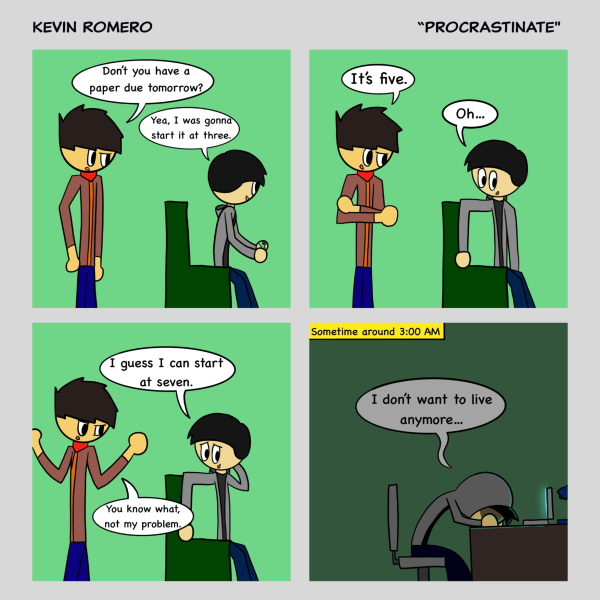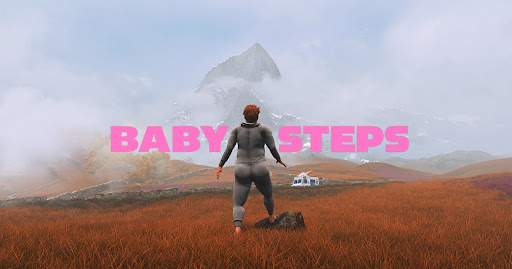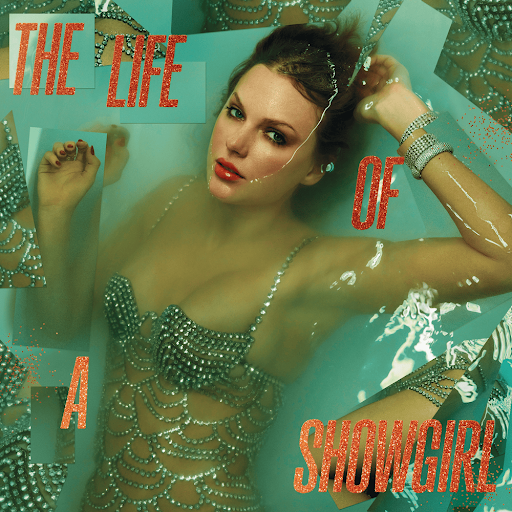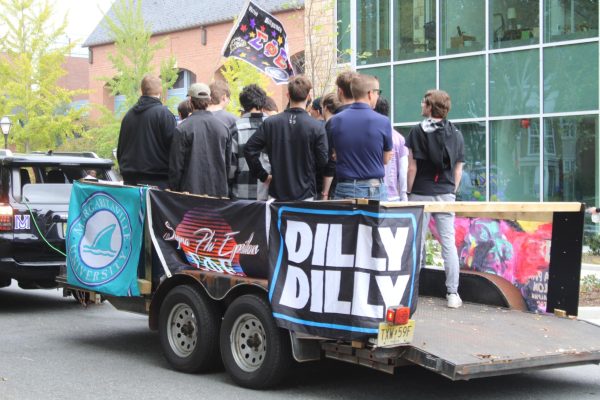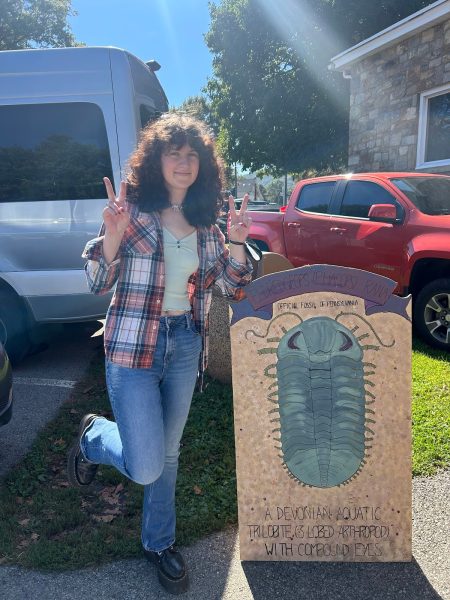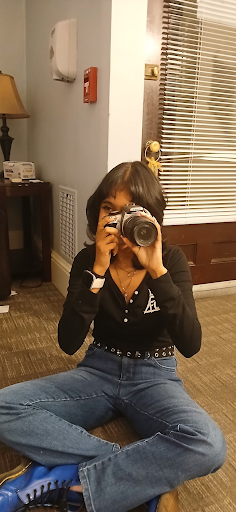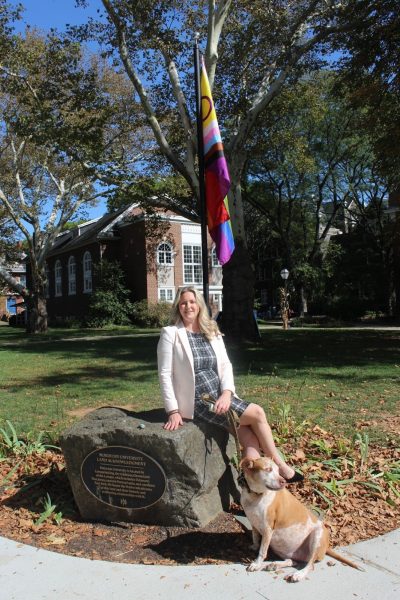Eight Questions for Kailey Tedesco

Kailey Tedesco photo courtesy of Kailey Tedesco
Kailey Tedesco is an adjunct English professor at Moravian College, a senior editor for Luna Luna Magazine, and a published author of three full-length poetry collections including her latest publication “FOREVERHAUS”.
One thing that I love about FOREVERHAUS is the way that it is incredibly feminist in a dirty, haunting, sometimes disgusting way. Do you view your portrayals of these invented characters as inherently feminist or are they simply just existing as themselves in their stories?
While I would 100% consider myself a feminist, I think that when I wrote this particular book, I didn’t necessarily set out with these ideas in mind. With that being said, I think the explorations of self, motherhood, and abjection all inherently carry feminist themes within the book. In terms of the blood and grossness, I’m really interested in horror as a genre and especially in how we tend to interact with abject horror, so I tried to be especially cognizant of that while I was writing the collection. I was really inspired by Julia Kristeva’s work here, and I wanted these poems to exist in a space where they’re aesthetically “pretty” but also somatically authentic and real.
There are so many references to a “mother character” in many of the poems in this collection? Is this a real-life connection or just a trope you really love to use?
In the back of the book I have a note that I was inspired by Angela Carter’s essay on the false mother trope in Grimm’s fairy tales. She describes the false mother as this prevailing motherly figure who lacks all of the traditional “motherly” qualities. With the poems, I had this unnamed character/presence within the book, but as I edited, I thought it made sense to have a motherly figure to guide the speaker through the haus, but also someone who embodies punishment and creates tension within the book. Haunting and afterlife narratives tend to balance wonderment and atonement, so this character felt authentic to the themes I was hoping to convey. There are poems where I have little tidbits of truth about my own mother and my own childhood, but with most of the poems in this collection I start off with a truth and let that evolve into the fairy tale or archetypal landscape. The speaker becomes the mother, the mother becomes Bloody Mary (who exists in the mirror), and Bloody Mary then naturally becomes the self. So the connective tissue throughout the whole collection is the way each archetype transforms into the next as each self tries to navigate the unreliability of memory within the space of the haus.
I noticed some nods to female characters aside from Bloody Mary, such as Carrie, Matilda, and Coraline. Was this just coincidence from interest, or is it important that strong girl characters have been included?
It’s kind of both; I’m obviously always carrying with me everything that interests me or inspires me. This collection was about lore and archetypes and all of the characters that you mentioned exist within the realm of lore and archetypes. So I carried them in and mentioned other pseudo-mythical horror figures (Clara Bow, Theda Bara, etc.), and I think they’re all meant to be there as touchstones throughout the collection for grounding; I wanted the idea of the self as this pervasive legend to come through, and I think all of those figures exist as pervasive legends and in that sense are essentially immortal.
When you sit down to write poetry, what is your typical writing process like?
When I was in my M.F.A. program at Arcadia University, we did this exercise with the poet Simone White. She came in for a workshop and surprised us all by having us practice reiki. We had to very quietly put our hands on one another’s shoulders and just feel the vibrations of the room and one another for a super long period of time. Then she said, “Okay, now sit down and write a poem.” And I found the words just flowing after that. It was the first time in my whole writing life that a poem flowed that easily. So since then, I’ve looked into myself and found that free association is something that helps me to generate a poem. Now when I write, I do automatic writing exercises where, like reiki, I’ll intentionally check out and think about words and language. This has been so fruitful, but then the challenging part becomes editing and trimming the unnecessary language that ends up flowing onto the page. I have my own processes for editing which are much more deliberate and intentional, but for the writing itself I just let the language flow the way that it wants to flow.
Have you ever drawn writing inspiration from experiences at Moravian College, either from teaching or just being on campus?
Absolutely. For me, writing and teaching tend to go hand in hand. I’m privileged to be able to teach a variety of courses that reflect my personal interests, so I’m in a constant state of researching so that I can teach more effectively. The conversations we have in the classroom are always so revitalizing and fresh. Teaching has given me the gift of pause when writing, where for a moment, I’ll ask myself if I’m doing justice to the nuance of a particular topic. And, if the answer is no, teaching has also given me the tools to look harder and explore the previously unrecognized facets in more original ways, which is, I believe, such an integral part of poetry.
When you were an undergraduate student, did you picture yourself becoming a published poet? Has poetry always been part of your dream?
The short answer is mostly no.. The general consensus seemed to be that, to be a writer, you either had to be Stephen King or you were nothing at all. So, for a long time I told myself that any desire I had to write professionally was a pipe dream. I’m a first generation college student, so I had very little conceptions of what I might be able to explore creatively in college. As an undergrad, I was a secondary education English major who kept myself almost painfully practical, only dabbling in creative writing now and then. It wasn’t until I started hearing about my classmates’ experiences with publishing and literary readings that I started to pursue writing more seriously. This was the beginning of my introduction to the writing community which was truly a magical portal for me in so many ways. From there all of my previous conceptions of what it means to be a writer were totally shattered, in a good way! Now I understand that there’s no one path to follow. If you say you’re a poet, then you are one.
How do you balance teaching at Moravian and writing/publishing in your free time, especially in a digital world and in the time of a pandemic?
That’s a good question! Writing has always been a self-care technique for me, and writing a poem has always been a way for me to channel calmness and reflection. But since the pandemic, that’s definitely changed, and it’s become a lot harder to exist in that stillness for any extended period of time with the collective anxiety of everything that’s going on. Just recently I’ve started to force myself back into a routine by more intentionally seeking inspiration and prompts. In general, though, I’m trying to find comfort in reflecting on what I’ve already written, instead of pressuring myself to constantly produce more.
What advice do you have for Moravian students who want to become writers?
Don’t be afraid to take your wildest interests and explore them on the page. I grew up thinking that my interests were strange and that there was no room in this world for them. As long as you try your best and stay open to criticism, there will always be an audience somewhere who will really value and appreciate your insights. So, go for it; write about the weirdest thing that you’re interested in and see what happens.
You can find Kailey Tedesco’s work on her website, kaileytedesco.com, and you can purchase your copy of “FOREVERHAUS” here.
Click here to read our review of Tadesco’s “FOREVERHAUS”.


